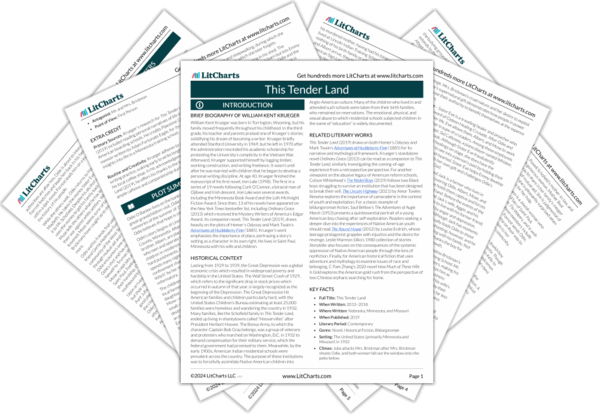Odie is resistant to the implication that Mrs. Brickman is anything like him, while Albert’s comment highlights how life’s circumstances—good or bad—inevitably shape a person. A still is a mechanical apparatus used for distilling alcoholic beverages from fermented grain. In 1932 in the United States, production and sale of such liquor was called “bootlegging” and was illegal. Volz looks after the boys, and they repay his kindness by keeping his alcohol production a secret. Odie’s harmonica again acts as a source of communal comfort and entertainment. That Odie shares his leftovers with the rat, Faria, paints him as a compassionate young man.
